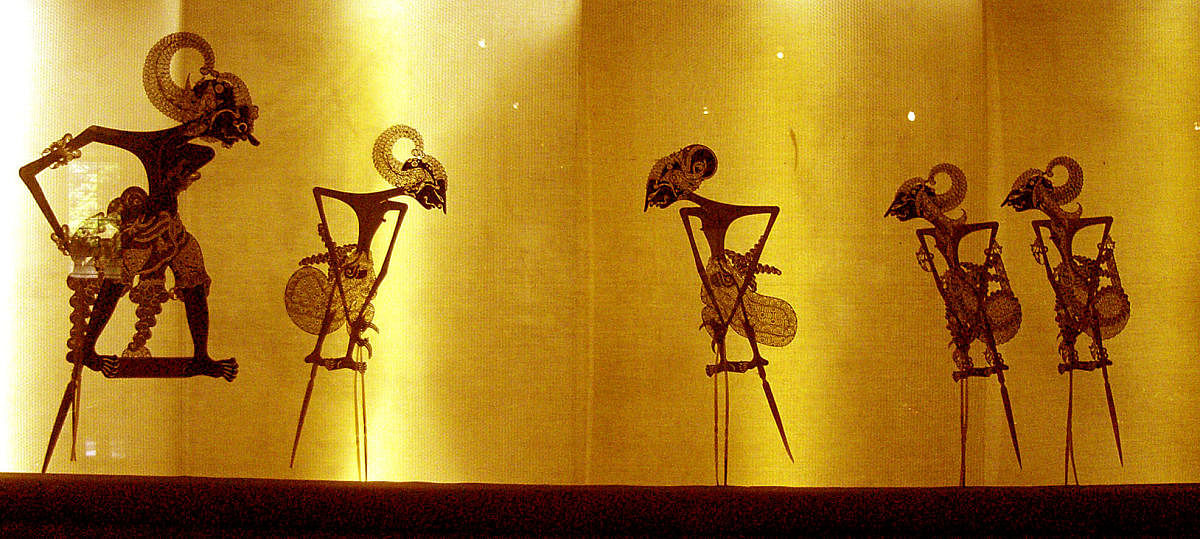
Introduction
The Mahabharata epic, a text of some 100,000 verses, composed in Sanskrit by the sage Vyasa, has been retold umpteen times, in Sanskrit as well vernacular languages, orally and in written form, through the centuries. Folkloric versions of the Mahabharata provide different perspectives to the epic depending on the traditions, customs, and beliefs of the people of the geographical region in which they are performed. Passed on orally from generation to generation, these versions keep changing with the times, imbibing contemporary characters and happenings. They include episodes not found in the classical versions. Epic characters of these narratives speak the local language and even interact with the local folk. Most of the time, their behaviour is no different from that of the average village folk.
‘Janapada Mahabharata’ is a unique re-creation of the classical epic by Nilagara singer-narrators in certain taluks in old Mysuru region. It is not often that one finds a single Nilagara performer narrating all the episodes of the Mahabharata. Renowned folklorist, Dr P K Rajashekar happened to discover this rare talent, Bettada Beedu Siddhashetty during his fieldwork. He got Siddhashetty to sing the whole of the Mahabharata, wrote it down by hand, edited and published it later. Thanks to this collaboration, the Kannada reading public can access this rare volume.
My attempt is to select some of the more fascinating episodes from this volume and narrate them in prose, retaining the flavour of the original as far as possible. I have also retained the native forms of the names of epic characters used in the folk epic.
Knowing how miserable Duryodha was as long as Pandavas lived in Hastinapura, Vidura and Bhishma decided, with Dritharashtra’s consent, to have a city called Indraprastha built, and sent Pandavas there. While the five Pandava brothers, with their mother Kontamma and wife Draupathi lived in comfort in Indraprastha, Bhimanna, seated amongst his brothers, came up with a just suggestion. “Look, we are five husbands to Dropathi. Being sons who have never disobeyed mother, we can’t disobey her in this either. So, my suggestion is, when any of us five brothers is with Dropathi in her palace, we should leave our footwear by the door, to indicate that one of us is inside with her. Taking a cue from the footwear, no other brother shall go inside then. Do you all agree to this?”
Following Bhimanna’s suggestion, the five brothers ruled over one wife.
This is what happened one day. Bhimanna came to Dropathi’s palace and was enjoying being intimate with her. During the time of their intimacy, Dharma came to Dropathi’s palace. He had no idea Bhimanna was inside with Dropathi. Looking for the footwear by the door, and feeling relieved at not finding any, Dharmaraya pushed open the door of Dropathi’s palace.
Walking into her small bedroom Dharma saw a sight he shouldn’t have seen. It wasn’t a moment he should’ve witnessed. As though he hadn’t seen it at all, Dharma walked out at once.
But having seen Dharma come inside, Bhimanna felt greatly upset. When he had washed himself clean, meeting his brother in the hall, he said, “How could you do this anna? Is it becoming of an older brother?”
“Thamma Bhimanna, you forgot the rule you had made. According to your own suggestion, shouldn’t you have left your footwear by the door before you went in?” said Dharmaraya.
“Of course, I left my footwear by the door. You walked in without seeing them and shamed me.” When Bhimanna says this to Dharma, they look at the spot by the door, and find no footwear there!
“Do you see this? It wasn’t my fault, was it?”
“I did leave my footwear there, anna. I can’t imagine what happened to them. Did somebody remove them?” said Bhimanna looking around. Scanning the street from the balcony, when he saw a dog and a bitch walking away, each with a footwear in its mouth, Bhimanna grew livid at the sight.
“Ayyo, you wretched dogs! Did you carry my footwear away, removing the sign of my presence from the door? Just as I was put to shame because my brother saw me being intimate with my wife, while you are intimately joined together, let children stone you and shoo you off the roads! Let people curse you and damn you! Let your modesty be auctioned off for nothing!”
Bhimanna, in his anger, thus cursed the dogs in this manner.
The author, a retired professor of English, is a well-known theatre and television artiste and an award-winning translator.
Folktales from the Mahabharata is a new monthly column that features lesser-known episodes from ‘Janapada
Mahabharata’, a unique re-creation of the classical epic by Nilagara singer-narrators. This episode has been sung by eminent folk-artiste, Bettada Beedu Siddhashetty; it was collected, edited, and published by Dr P K Rajashekhar.